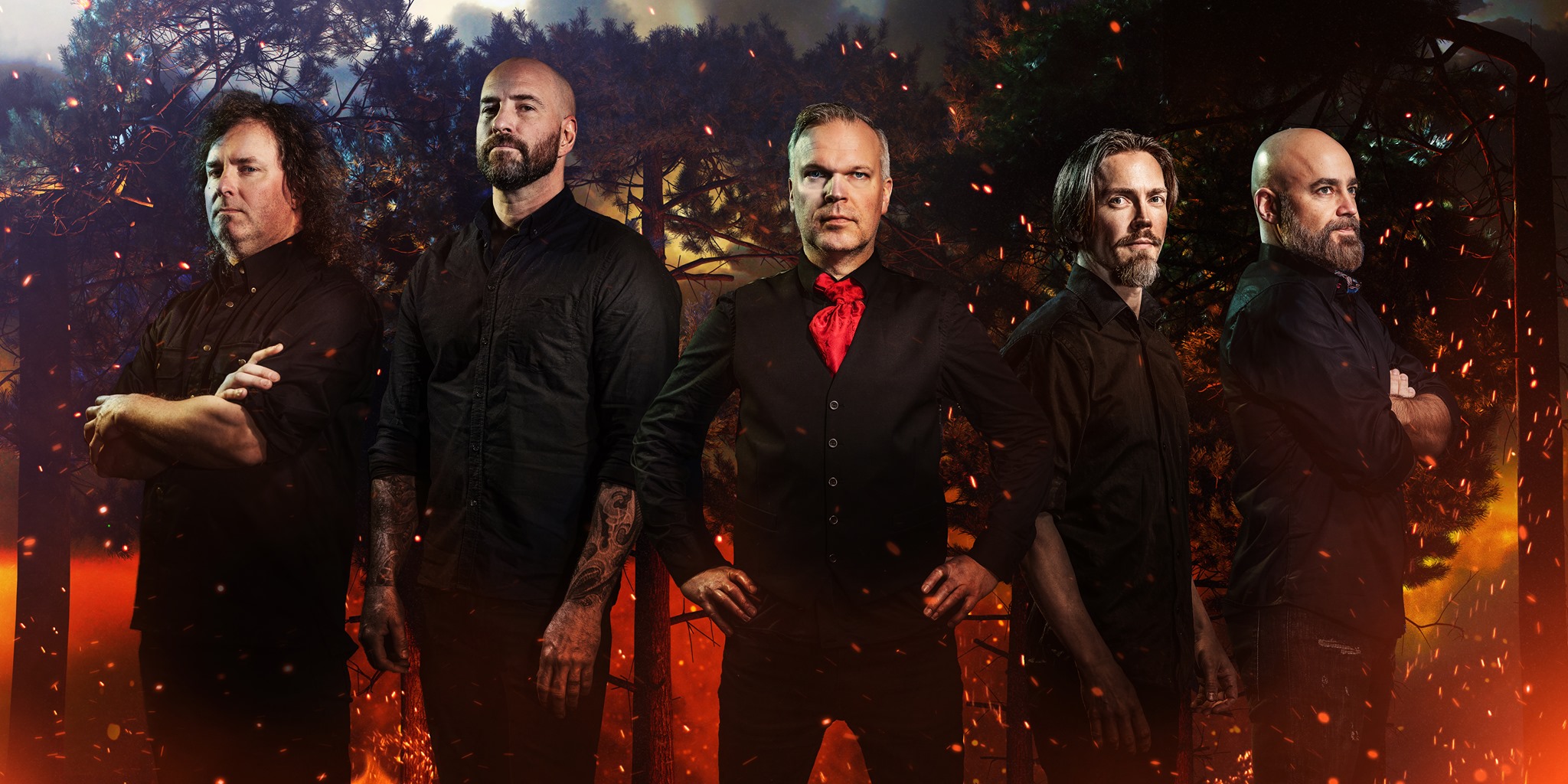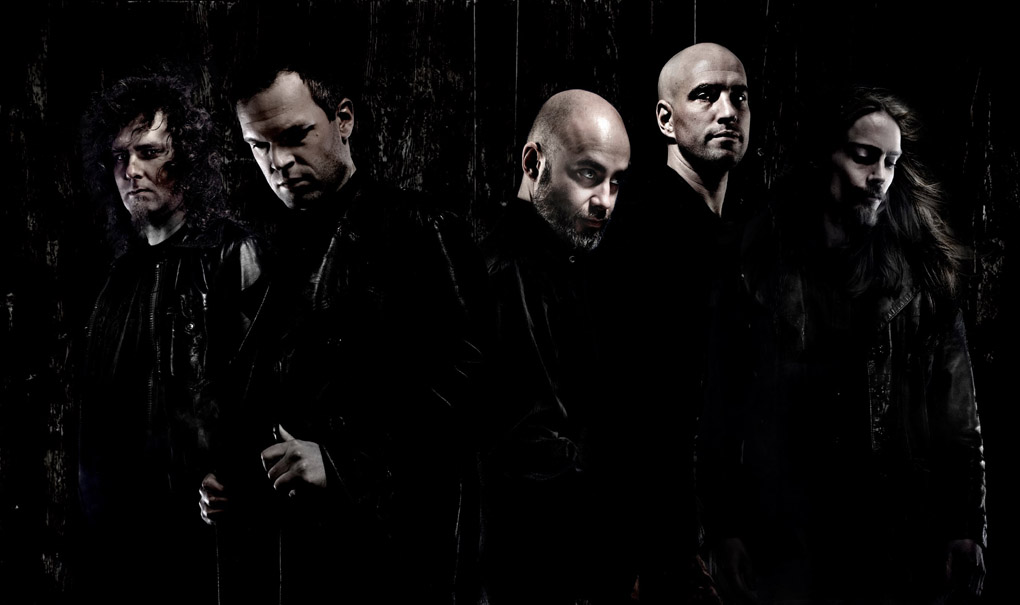I’m not sure where else to begin other than my own feelings in talking about Falconer’s newest, and seemingly last album, the appropriately titled From A Dying Ember. I’m saddened that we’re losing one of power metal’s leading lights —- scratch that, one of metal’s leading lights (and most unheralded). This is a band that I first discovered in 2001 thanks to that eternal program the Metal Meltdown on Cleveland’s WRUW hosted by my friend Dr. Metal. He was playing “Mindtraveller” of course, from their flawless debut album and I was immediately struck by how different this band sounded to the handfuls of other power metal bands that show had introduced me to. The singer wasn’t screaming full force into the microphone like a raging hellion ala Dickinson or Halford, his voice was reserved, smooth, and dare I say calm at points in it’s delivery and phrasing, very unmetal-like. I didn’t know at the time that said vocalist, Mathias Blad, was in fact a theater actor with no metal background whatsoever. His unorthodox vocal approach in conjunction with the band’s extra meaty riffs set to darker, folkier melodies, resulted in a heavier sound that hinted at influences that weren’t from the Helloween power metal family. And somehow it all just worked.
The band obviously wasn’t the same on those two mid-career records when Mathias had left and the rest of the band wanted to make a run at becoming a touring band. There were some good songs here and there (“Emotional Skies” in particular is a gem), as a songwriting talent like Stefan Weinerhall is a fount of inspiration even in less than ideal artistic circumstances. But it was clear that Blad was the key missing ingredient to make Falconer’s music so special and unique amidst the metal landscape. He returned and the band knocked out Northwind and Among Beggars and Thieves in quick succession, two albums that were to me just as magical and magnificent as the debut and Chapters From A Vale Forlorn. Then we got the unique and ultra-heavy experiment in all Swedish lyrics on Armod, an album that brought back the band’s extreme metal roots ala Mithotyn with some of the most punishingly heavy, and dare I say blackened songs ever. It was followed up with Black Moon Rising, an album that has aged far better than it’s initial impression would have suggested it would, some of its songs coming alive to when I came back to it years later. But that’s hardly surprising. Falconer’s gift was that they could be both instantaneous and yet rich in depth, some songs taking awhile to offer up their brilliance. Some people still don’t understand just how magnificent “Pale Light of A Silver Moon” is from Among Beggars, with that wordlessly joyful guitar explosion from the 1:05-1:37 mark. Some have yet to realize that Northwind contains one of the most emotionally engaging ballads in the metal genre ever in “Long Gone By”, a song so wistful and stirring that it’s hard not to be caught off guard by it every listen.

The band admirably enhances their incredible artistic legacy with the eleven songs on From A Dying Ember, which according to Weinerhall was written with an aim to be the most classic-molded Falconer album ever. He recently stated that he wanted to “…concentrate on having all Falconer elements present and really make sure that each element got full devotion. For example, the ballad should be as “ballady” as ever, and the folk song should sound as folky as possible, etc.” That meant that all the elements we loved the most about their work in the past would be amplified and stressed on this record, and it does come across that way. The opener “Kings And Queens” and “Redeem and Repent” are confident mid-tempo gems with plenty of thick slabs of chunky riffs balanced out with bright, lucid guitar melodies, reminiscent of material off the debut album. And I get shades of “Mindtraveller” in the accelerated pacing of the single “Desert Dreams”, which is at once catchy as all get out and entirely unusual in its unorthodox rhythmic structure. This is a stunning song by the way, a late career diamond that would have fit in on the debut or Chapters just fine, and its apex moment comes at the 3:35-3:50 mark when Blad drops in some overlaid vocals that add a wallop of satisfying emotion to an already brilliant chorus. I was driving around when I first listened to this song, and right around when Blad hit that extension on the end of “…the more I will looooooose”, I believe my exact exclamation was “Mathias you magnificent bastard!”. Stefan was certainly right on the money about having the folky song be as folky as possible, because “Bland Sump Och Dy” sounds like it could have been on Armod were it not for its slower, waltz-y tempo. It occurs to me that this is likely as close as we get to hearing what Blad sounds like when he’s singing at his gig with the theater company in Sweden. What’s so striking to notice here is how little difference there is in his vocal style here to the much heavier follow-up track “Fool’s Crusade”. Despite the latter’s near tremolo-sounding attack and its largely aggressive bent, Blad is smooth and in control as ever, even during the “…Crush the dream / And wake up / Ignorant One…. tension build and release sequence at the 3:07 mark.
The most ballady Falconer ballad that Stefan was referring to earlier is the showstopper “Rejoice the Adorned”, a piano and Blad affair that is extra potent in its tear-jerking capabilities due not only to the amazing vocal performance we’re treated to, but for the recognition of finality in those lyrics about loss and remembrance. I’m aware that it wasn’t written to be an epigraph on the band, but that’s how I’m internalizing it presently. It is on the same heartbreaking level as “Portals of Light”? Well, few things are, and it’s a different flavor of melancholy, but it’s a fine song for the band to bow out on as their last ballad. On the opposite end of things, there’s a pure metal jam on “Rapture”, the album’s final track (and I guess the career closer too), a visceral reminder how just how damn heavy and thundering this band can be despite their theatrical leanings. Stefan’s longtime co-founding bandmate drummer Karsten Larsson delivers a pummeling, primal performance here, a reminder of just how integral a part of the band’s sound he was all these years with powerful drumming in inventive, unrelenting fashion. I wanna take a sec to recognize bassist Magnus Linhardt, who as always is an audible and integral part of these songs, providing that rumbling foundation that cements nearly all of Falconer’s music in the heavier realm of sound. He’s been with the band since 2004, as has the wildly inimitable Jimmy Hedlund, whose lead guitarwork throughout the years I hold in as much esteem as Andrea Martongelli from Power Quest and Andre Olbrich from… well you know where. Hedlund’s style is infused with a shredder’s touch, but he incorporates it in fits and bursts into playing that is expressive, lyrical, and a complement to Stefan’s intense rhythm guitarwork.
I realize that this is probably sounding less like a review than the gushings of a fanboy, and I can admit that’s probably true. My consensus on this album is that its instantly more enjoyable than Black Moon Rising, far more “classic” Falconer than I ever expected the band could accomplish, although they’ve never really strayed far from what made them great in the first place. As a swan song, it’s everything a fan could hope for, and that its so accomplished also lends an air of gravity around the whole thing —- they’re going out on top. And when a band ends on a great record, and I do believe From A Dying Ember is a legit great Falconer record, a part of you can’t help but wonder what else they could accomplish in the future if they just stuck around a bit more. I said it at the top… I’m really saddened that the band is ending. I know that there are others who feel the same way, and I suppose on behalf of all of us, I should declare how grateful I am that we’re getting this fine of a send off. The gap between this release and the previous record is about six years, the longest between Falconer releases by a long shot. And to their credit, they saw this album through when they could have easily just talked away quietly a few years ago after they had made it clear there were going to be no more live gigs. This band has been a part of my life for nearly twenty years now, providing the soundtrack to so many days and nights, I really do feel like there’s a sense of loss I’m processing… and yes I realize that sounds overly dramatic but I’m just being honest here. I’ll blame my already stressed out emotional state for that, having been so busted to the floor already by the pandemic/lockdown and everything that came with it. This band always deserved more fans, more appreciation during their time for not only their uniqueness, but for their metal as hell resolution to do things their way, even if it meant being a studio project. I’ll just end this by expressing how grateful I am to be one of the few to have heard the clarion call. Thanks for the music Falconer.


 If you’ve been needing something to be thankful for lately, here’s something: Stefan Weinerhall, guitarist/songwriter of power metal’s mighty Falconer is still writing and recording music. I only bring this up because it appears that this was in doubt for quite a long period of time following the release of the band’s last album, 2011’s Armod. For a short while, all we had to go on in terms of evidence that points to this was Weinerhall’s own cryptically worded message in the latest press release announcing their new album, in which he stated, “After an eight-month complete break from music on the verge of quitting it, I finally returned with a feeling of hunger, power and commitment to the songwriting.” But in a recent
If you’ve been needing something to be thankful for lately, here’s something: Stefan Weinerhall, guitarist/songwriter of power metal’s mighty Falconer is still writing and recording music. I only bring this up because it appears that this was in doubt for quite a long period of time following the release of the band’s last album, 2011’s Armod. For a short while, all we had to go on in terms of evidence that points to this was Weinerhall’s own cryptically worded message in the latest press release announcing their new album, in which he stated, “After an eight-month complete break from music on the verge of quitting it, I finally returned with a feeling of hunger, power and commitment to the songwriting.” But in a recent 
